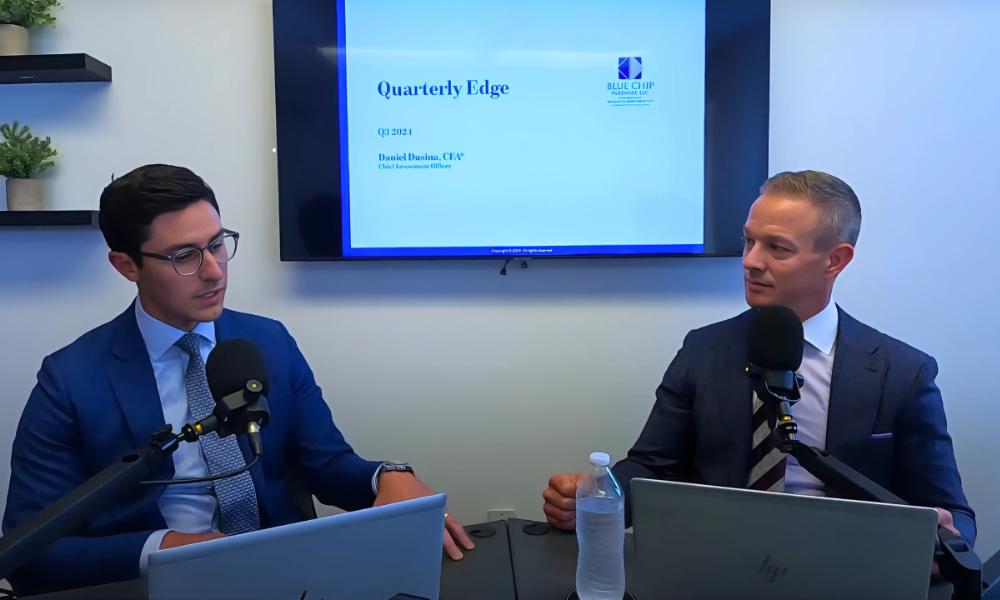

Executives navigating wealth management today face complex financial decisions, from managing concentrated stock positions to addressing behavioral biases and ensuring tax efficiency.
For Daniel Dusina and Daniel Seder of Blue Chip Partners, utilizing a deep-seated understanding of regulatory frameworks paired with an adoption of technology is crucial to successfully diversifying an executives’ portfolio while remaining in line with regulatory restrictions.
Amendments three years ago to the SEC’s 10b5-1 plans, which added disclosure requirements and enhanced investor protections against insider trading, have not significantly altered Blue Chip Partners’ approach to equity-based compensation. Seder emphasizes the importance of ensuring diversification in executives’ portfolios, which can often prove challenging.
“Our clients are … interested in de-risking a highly concentrated position. It's an enviable dilemma that they have, having a lot of money in one stock, but it's a huge risk to their portfolios,” said Seder, managing partner at Blue Chip. “They're interested in de-risking their portfolio, but also they want an affirmative defense against any type of insider trading.”
Because executives are often privy to material non-public information, they face stringent blackout periods that limit their trading windows. Seder says he takes full advantage of open windows to plan for the future.
“We use 10b5-1 plans to combat that. In an open window, they're eligible to identify price targets, identify share blocks that they want to liquidate, or certain types of grants that they want to exercise or execute upon, and then the plan will take care of itself,” adds Seder.
Executives often struggle with the psychological biases that come with significant wealth accumulation.
“As our wealth over the years has grown markedly due to market increases or the performance in the stock market, we're wealthier as a society,” Seder said. “When their company is doing well and they're becoming wealthier and wealthier, they often let that ride, and that conflicts with the concept of diversification and risk management.”
Additionally, the endowment effect—where individuals place a higher value on what they own—can cause executives to overestimate the worth of their company stock.
“That also is a very, very strong behavioral bias that would impact corporate executives, and one that we address, not only in our financial planning and modelling, but also in establishing 10b5-1 plans,” said Dusina, chief investment officer at Blue Chip.
The evolution of tax-efficient wealth management has been accelerated by technological advancements, providing firms with powerful tools for portfolio optimization.
“We are so spoiled today, just given the advancements of technology platforms, the availability of different types of products,” added Dusina. “It's unbelievable the tools and resources that we have at our disposal now.”
Source: Investopedia

By listening for what truly matters and where clients want to make a difference, advisors can avoid politics and help build more personal strategies.

JPMorgan and RBC have also welcomed ex-UBS advisors in Texas, while Steward Partners and SpirePoint make new additions in the Sun Belt.

Counsel representing Lisa Cook argued the president's pattern of publicly blasting the Fed calls the foundation for her firing into question.

The two firms violated the Advisers Act and Reg BI by making misleading statements and failing to disclose conflicts to retail and retirement plan investors, according to the regulator.

Elsewhere, two breakaway teams from Morgan Stanley and Merrill unite to form a $2 billion RIA, while a Texas-based independent merges with a Bay Area advisory practice.
Orion's Tom Wilson on delivering coordinated, high-touch service in a world where returns alone no longer set you apart.
Barely a decade old, registered index-linked annuities have quickly surged in popularity, thanks to their unique blend of protection and growth potential—an appealing option for investors looking to chart a steadier course through today's choppy market waters, says Myles Lambert, Brighthouse Financial.
